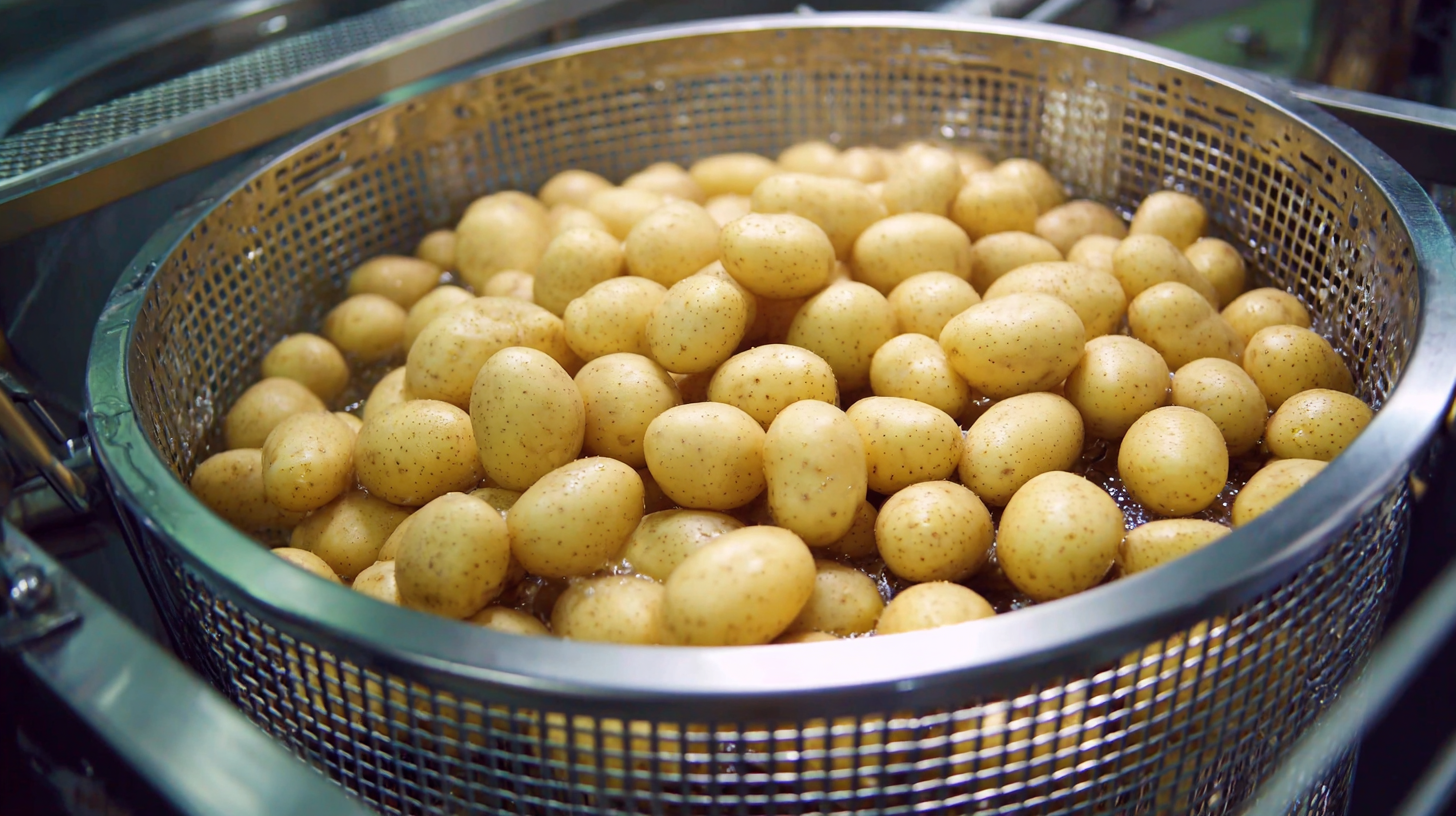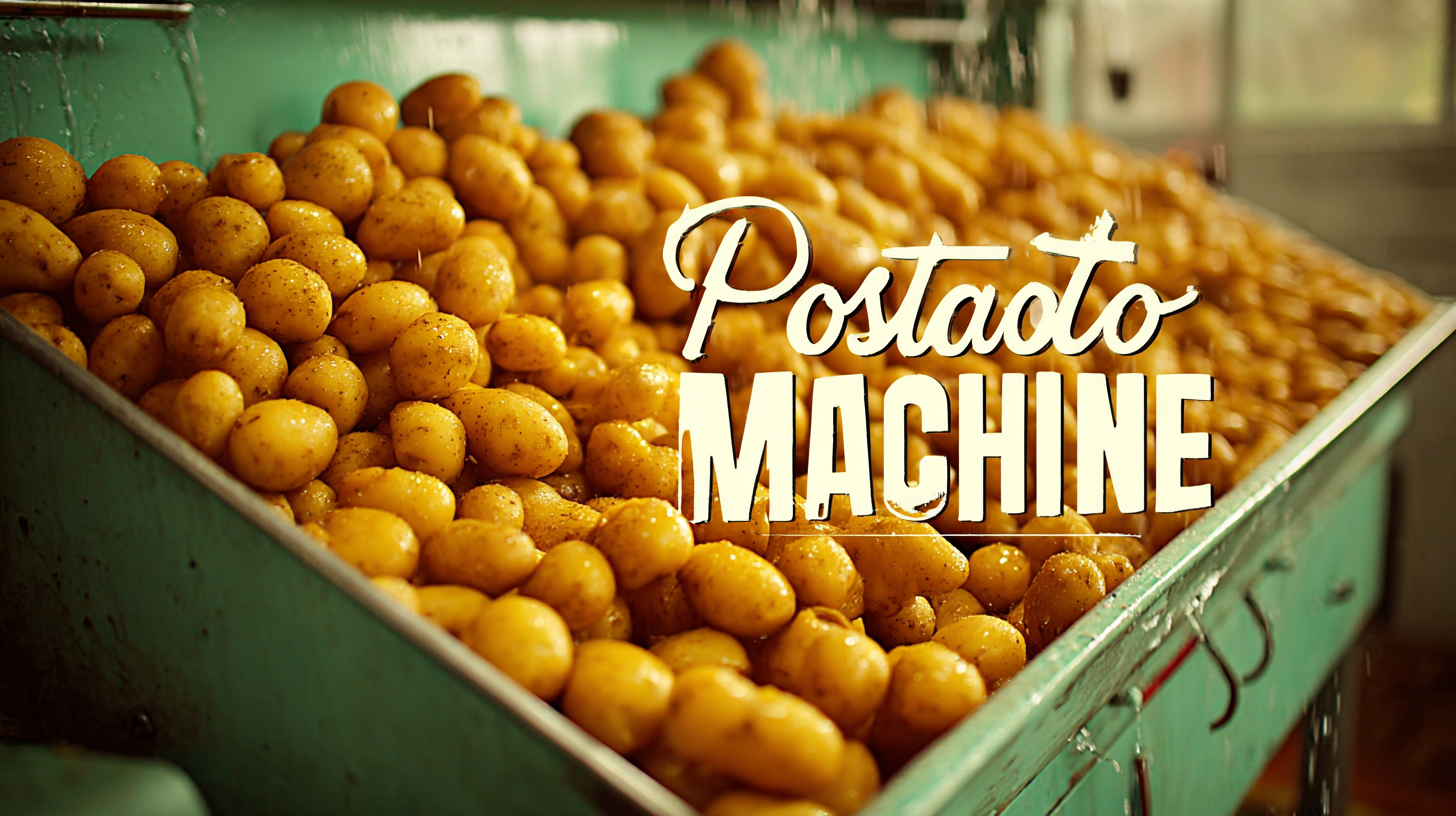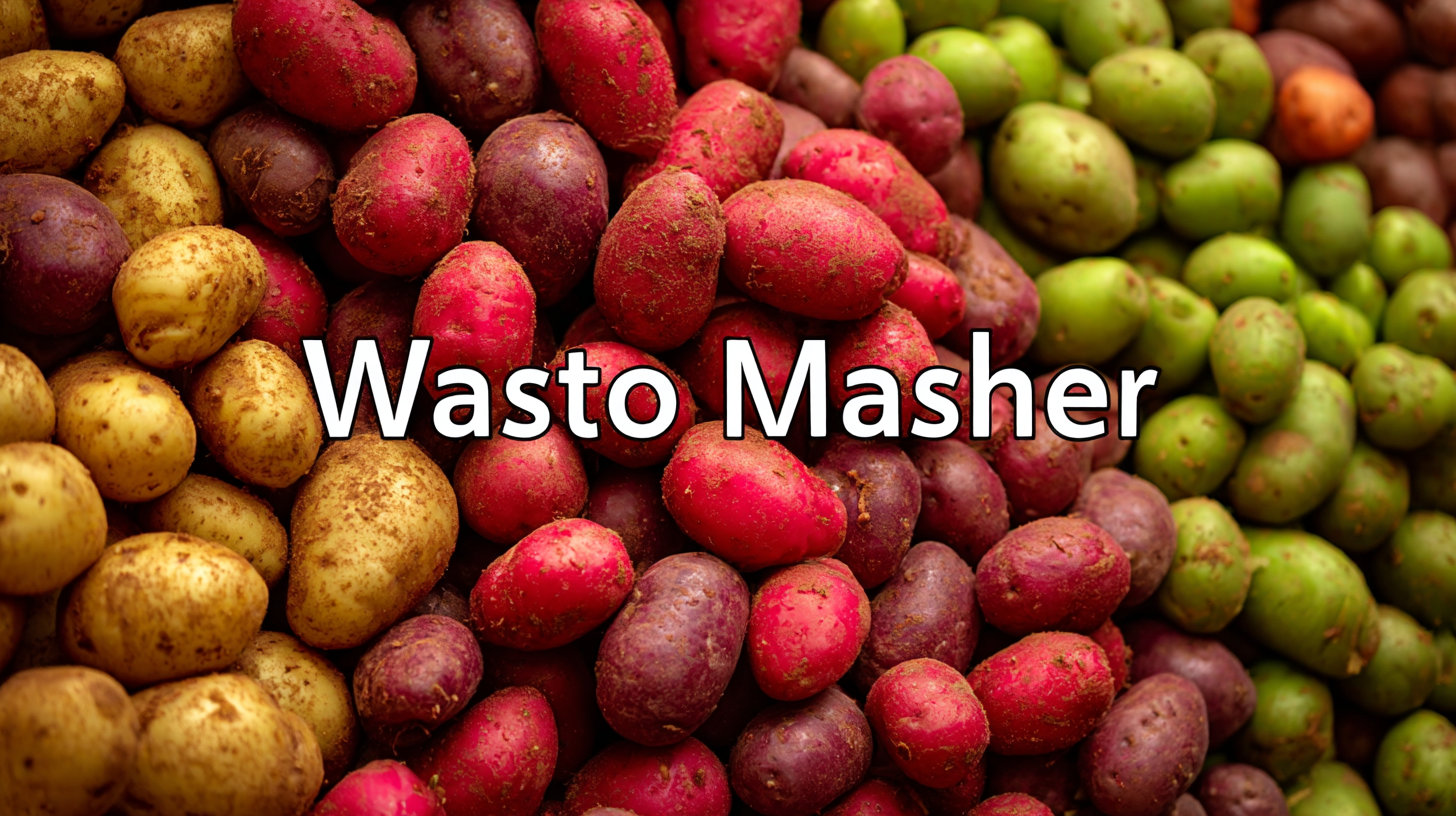
When selecting the best Potato Washer Machine for your business needs, it's essential to consider not just the machine's performance and efficiency, but also the after-sales service advantages and maintenance costs associated with it. According to a recent industry report from Market Research Future, the global potato processing market is projected to reach $57 billion by 2025, indicating a growing demand for effective processing equipment. Ensuring that you have reliable support and manageable maintenance expenses can significantly impact your operational efficiency and profitability. A well-chosen Potato Washer Machine can streamline your washing processes, but without solid after-sales service, you risk downtime and increased costs. Therefore, evaluating these factors meticulously will help you make an informed decision that supports your long-term business objectives.

When selecting the best potato washer machine for your business, it's essential to understand the various types available in the market. Different models cater to specific business needs, and recognizing these distinctions can significantly impact productivity and efficiency.

For instance, barrel washers are commonly used for cleaning root crops, offering an effective method for removing dirt and debris. This design allows for a thorough wash while being gentle on the potatoes, making it suitable for small to medium-scale operations.
Another notable option includes rotary washing machines, which provide a more automated approach to cleaning. These machines can handle larger batches and typically incorporate various washing techniques to ensure optimal cleanliness. As the demand for processed potatoes continues to rise, the importance of investing in the right potato washing equipment cannot be overstated.
Assessing the volume of potatoes processed and the level of automation desired will guide businesses in choosing the ideal machine to enhance their operational efficiency.
When selecting the ideal potato washer machine for your business, several key features should be at the forefront of your decision-making process. First and foremost, the capacity of the machine is critical. Depending on your production volume, you'll want to choose a washer that can handle both your current needs and any future growth. Look for models that can process large batches quickly to ensure efficiency without sacrificing the quality of the wash.
Another important feature is the type of washing mechanism. Machines that use a combination of brushes and water jets usually provide the best results, as they can effectively remove dirt and debris while minimizing damage to the potatoes. Additionally, consider the ease of maintenance and cleaning. Machines with accessible components and straightforward disassembly will save you time and effort in upkeep, which ultimately contributes to operational efficiency. Lastly, energy consumption and durability also play crucial roles. Opt for machines built with energy-efficient technology to keep operational costs low while ensuring longevity to withstand daily use in a bustling environment.
When selecting a potato washer machine for your business, evaluating its efficiency and productivity is crucial. An efficient washer not only streamlines the cleaning process but also minimizes water and energy consumption, which can lead to significant cost savings. Look for machines that boast high throughput rates, allowing you to wash large quantities of potatoes in a shorter time frame without sacrificing quality. Additionally, consider the design and technology employed in the machine; features like rotating brushes or high-pressure jets can enhance cleaning effectiveness and reduce the time potatoes spend in the washer.
Productivity is another key factor to assess when choosing a potato washer. A machine that integrates seamlessly into your production line can greatly improve overall workflow. Investigate systems that offer adjustable settings, enabling you to fine-tune the washing process based on the size and type of potatoes being processed. This flexibility can help accommodate different business needs and peak production periods. Furthermore, look for machines that are easy to maintain and operate, as this will minimize downtime and keep your operations running smoothly.
| Model | Capacity (kg/hour) | Power (kW) | Water Consumption (liters/hour) | Dimensions (mm) | Price Range ($) |
|---|---|---|---|---|---|
| Model A | 500 | 2.5 | 200 | 1500 x 800 x 1000 | 5000 - 7000 |
| Model B | 700 | 3.0 | 250 | 1600 x 850 x 1100 | 6000 - 8000 |
| Model C | 1000 | 4.0 | 300 | 1800 x 900 x 1200 | 7000 - 9000 |
| Model D | 1200 | 5.0 | 350 | 2000 x 950 x 1300 | 8000 - 10000 |
When selecting a potato washer machine for your business, understanding the balance between cost and value is crucial. It’s not just about finding the cheapest option available; instead, you should evaluate how each machine meets your specific needs. For example, consider the capacity and efficiency of the washer. A machine that can handle larger batches may have a higher upfront cost but could save you money in labor and time over its lifespan. Look for features that enhance productivity, such as adjustable settings and easy maintenance, which are often overlooked in cheaper models.

Additionally, consider the long-term operational costs associated with each machine. Energy efficiency and durability can significantly affect your overall expenses. Investing in a reliable, energy-efficient potato washer could lead to lower utility bills, while a durable machine reduces the frequency of repairs and replacements. Make sure to read reviews and seek out feedback from other businesses in your industry to ensure that the machine you choose offers the best value for your budget.
Balancing initial investment with anticipated long-term savings is the key to making a wise purchasing decision.
When it comes to maintaining your potato washer machine, proper care is crucial for ensuring its longevity and efficiency. Regular cleaning is the first step; after each use, make sure to remove any residual dirt or potato scraps. This not only prevents build-up but also reduces the risk of contamination and ensures that your machine operates at peak performance. Consider creating a routine maintenance schedule that includes weekly deep cleaning, where you disassemble parts for a thorough wash.
Another important aspect of maintenance is to regularly inspect the machine for wear and tear. Check hoses, brushes, and screens for any signs of damage or blockage. Timely replacements can prevent minor issues from becoming major problems that could disrupt your operations. Additionally, lubricate moving parts as recommended by the manufacturer to ensure smooth operation and extend the life of your equipment. By being proactive in your maintenance efforts, you can keep your potato washer running efficiently for years to come.